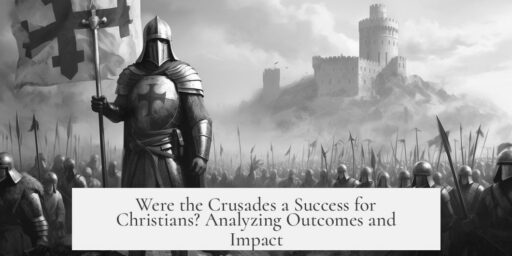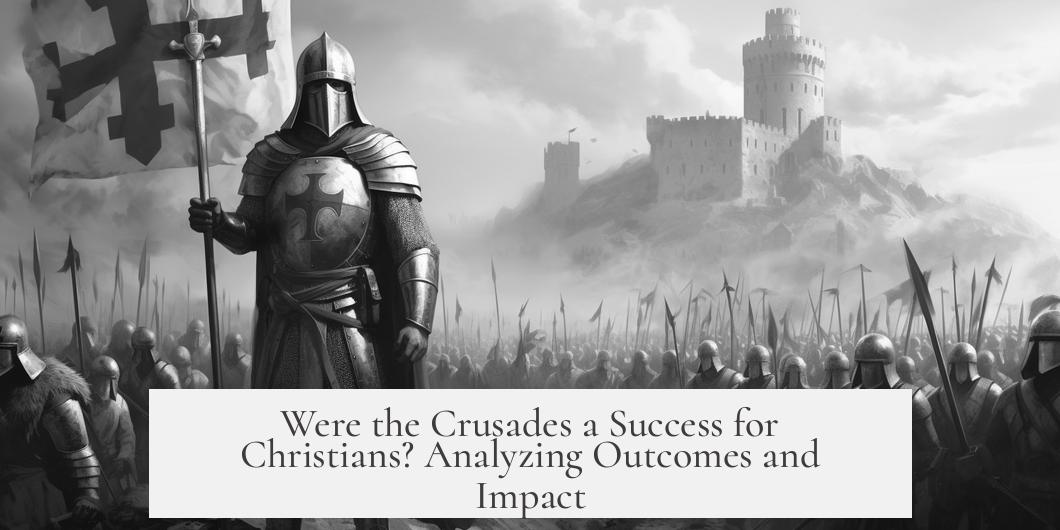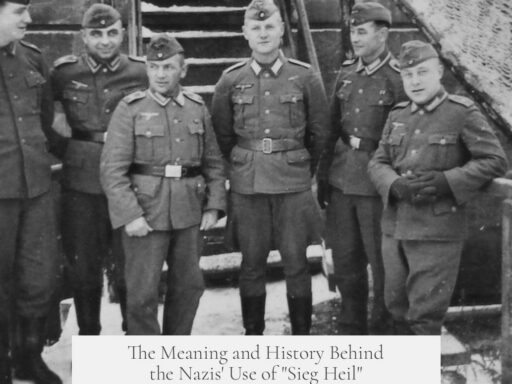The Crusades were not a clear success for the Christians when measured by the original religious and territorial goals. While they achieved some short-term victories, the long-term control of the Holy Land and permanent unification of Christendom largely failed.
The crusaders initially aimed to claim Jerusalem and surrounding territories as Christian lands. Though the First Crusade managed to establish several crusader states in the Levant, these gains proved temporary. Over subsequent centuries, Christian forces lost almost all holdings in the region, failing to secure lasting possession of the Holy Land.
Many crusades never reached their targets, suffered heavy casualties, or ended in defeat. From a military perspective, large losses and strategic failures marked the campaigns. Even victories came with such severe manpower depletion that labeling the wars successful is difficult.
On the religious front, one goal was to unite the Eastern Orthodox and Western Catholic Churches. This objective failed as deep theological and political divides persisted. The schism remained intact through and after the crusading period.
Certainly, the crusades helped strengthen the Western Church’s political power and legitimacy in Europe. Faced with internal scandals and fragmentation, the crusades united Western monarchs and the papacy around a common cause. This alliance increased church influence over European politics and society.
Trade and cultural exchange also provide a positive legacy. The crusades reopened contact between the West and the Eastern Mediterranean, paving the way for the Renaissance. Crusaders and pilgrims brought back Eastern goods, books, and scientific knowledge previously unknown in Europe.
Religious military orders like the Knights Templar and Hospitallers learned advanced banking and architectural techniques in the East. These groups then disseminated this knowledge across Europe, spreading innovations that would influence medieval society beyond purely religious aspects.
The influence of the Mongol Empire during the crusading centuries should not be overlooked. While Christian and Muslim armies battled in the West, Mongols expanded across the Middle East and Africa. Their conquests weakened many Islamic powers, indirectly benefiting European forces. The Mongol destruction of intellectual centers like Baghdad shifted cultural supremacy toward the West over time.
Inside Europe, crusades targeting heretical groups or political enemies usually succeeded in advancing the Catholic Church’s goals. Such campaigns reinforced church authority within Christendom but did so at great human cost. These internal crusades show a different dimension of crusading success, mostly tied to maintaining religious uniformity.
| Aspect | Outcome |
|---|---|
| Control of Holy Land | Temporary gains lost by end of crusades |
| Military Success | Heavy losses; many failed expeditions |
| Church Unification | Failed to unite Eastern and Western Churches |
| Western Church Influence | Strengthened politically and socially |
| Trade & Cultural Exchange | Significant positive impact promoting Renaissance |
| Internal European Crusades | Generally successful enforcing church aims |
The crusades also served as a powerful propaganda tool. They created a lasting narrative of Christian unity against Muslim opponents. This cultural memory impacts interfaith and political dynamics even today.
The overall foreign policy effect of the crusades in the Middle East represents a long-term disaster. Christian attempts to establish permanent states led to continuous conflict and instability throughout the region. The Muslim world also gained in some respects by spreading inventions and knowledge through interactions during the crusades.
In summary, success depends on perspective. The crusades failed their primary religious and military objectives of permanent conquest and church unity. Yet they strengthened the Western Church, enriched European culture and trade, and influenced medieval politics. Causes of short-lived gains and long-term setbacks show the complexity of judging the crusades.
- The crusades failed to secure lasting Christian control of the Holy Land.
- Military campaigns often ended in heavy losses or defeat.
- Church unification between East and West was unsuccessful.
- The Western Church gained political influence and legitimacy.
- Cultural and economic exchanges helped spark the Renaissance.
- Internal crusades within Europe furthered church dominance.
- The crusades contributed to ongoing Middle Eastern instability.
- Perspectives on success vary widely depending on criteria used.
Were the Crusades a Success for the Christians?
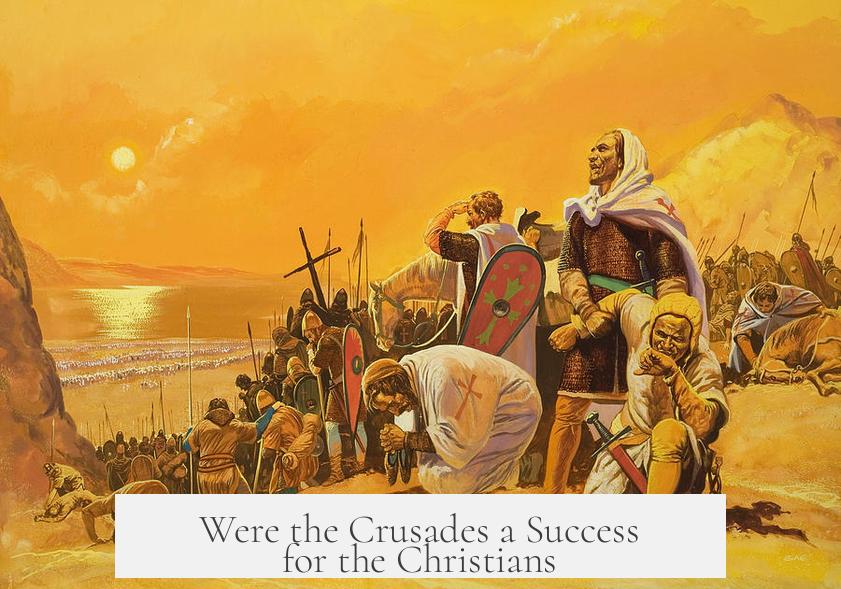
Short answer: The Crusades were a mixed bag, with some early wins but overall not a lasting success for the Christians. The First Crusade grabbed some territory, but in the long haul, the Christians lost almost everything they aimed for. So, were the Crusades a success for the Christians? Not really, especially if you define success by holding the Holy Land.
Now let’s dig into the messy details.
Defining Success and Who Counts as ‘Christian’
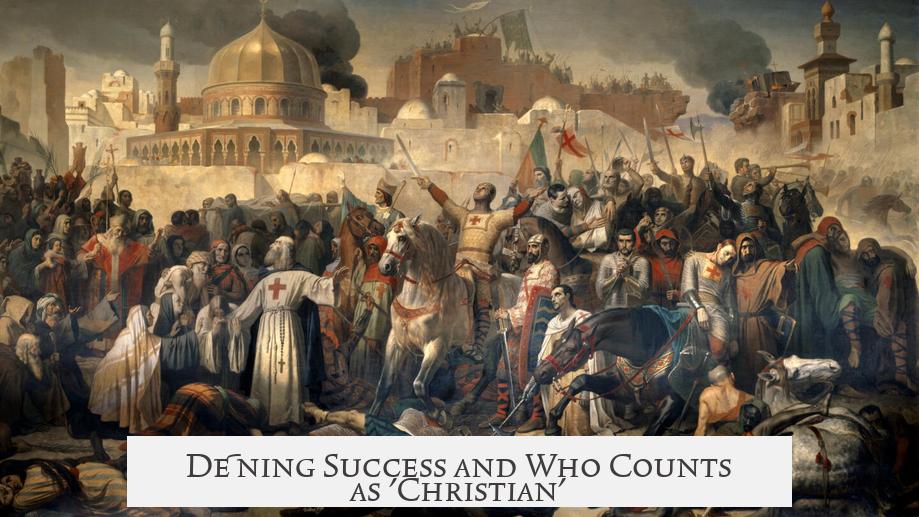
Right off the bat, the question hits a snag: what does ‘success’ even mean here? Are we talking about military victory, spiritual unity, economic gains, or political power? Also, which Christians? Western Catholics? Eastern Orthodox? The answer will vary depending on who you ask.
Success could mean holding Jerusalem; or uniting the Christian Church; or boosting medieval trade. The objectives weren’t that clear or uniform. So, expect shades of grey rather than black-and-white answers.
The Holy Land – Lost Cause from the Start?
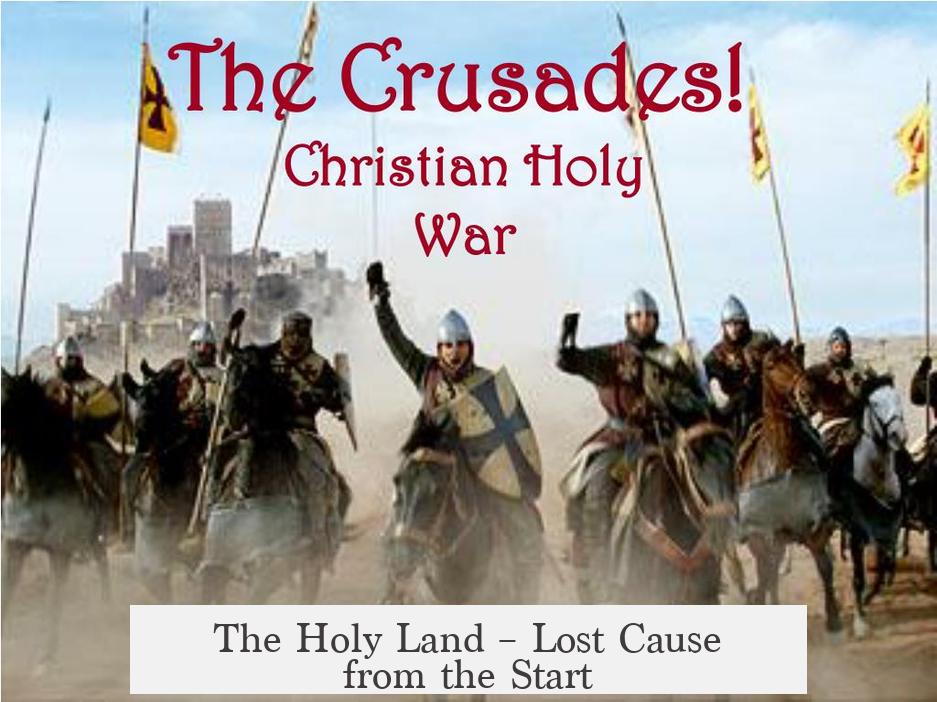
If the primary goal was to conquer and permanently hold the Holy Land as Christian territory, the Crusades pretty much flopped. Yes, the First Crusade (1096–1099) ended with Jerusalem under Christian control, making it a rare bright spot.
But that victory was short-lived. All subsequent Crusades mostly scrambled just to hold onto that initial gain. Eventually, those Christian-controlled kingdoms fell back to Muslim control—Jerusalem again in 1187, then later all the crusader states crumbled by the late 13th century.
Long term, Christians lost nearly all territories they initially gained. The Crusades never truly made the Holy Land a stable, lasting Christian possession.
The Crusades: A Boon for Trade and Culture?
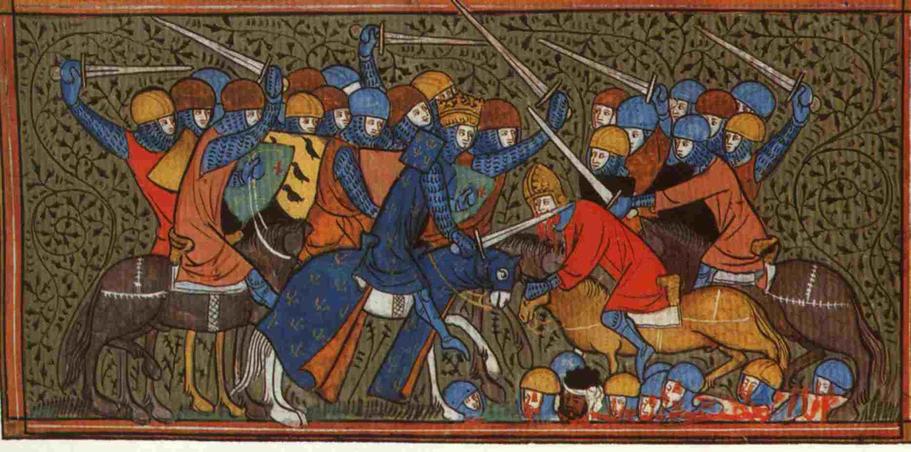
While territorial control failed, the Crusades gave the West some unexpected wins, especially in trade and culture.
- Through contact with Eastern lands, Western Europe gained access to new goods, ideas, and technologies. This helped spark the Renaissance, a major turning point in European history.
- Knights Templar and Hospitallers acquired advanced knowledge in architecture and banking, then brought these back West. They pioneered early banking systems that forever changed European finance.
- Scientific knowledge—from medicine to mathematics—flowed into Europe, lifting intellectual life.
The Crusades were like a medieval global trade fair disguised as holy war. If you think of them as economic and cultural exchange programs, they scored quite a success.
Church Unity: A Dream That Fizzled
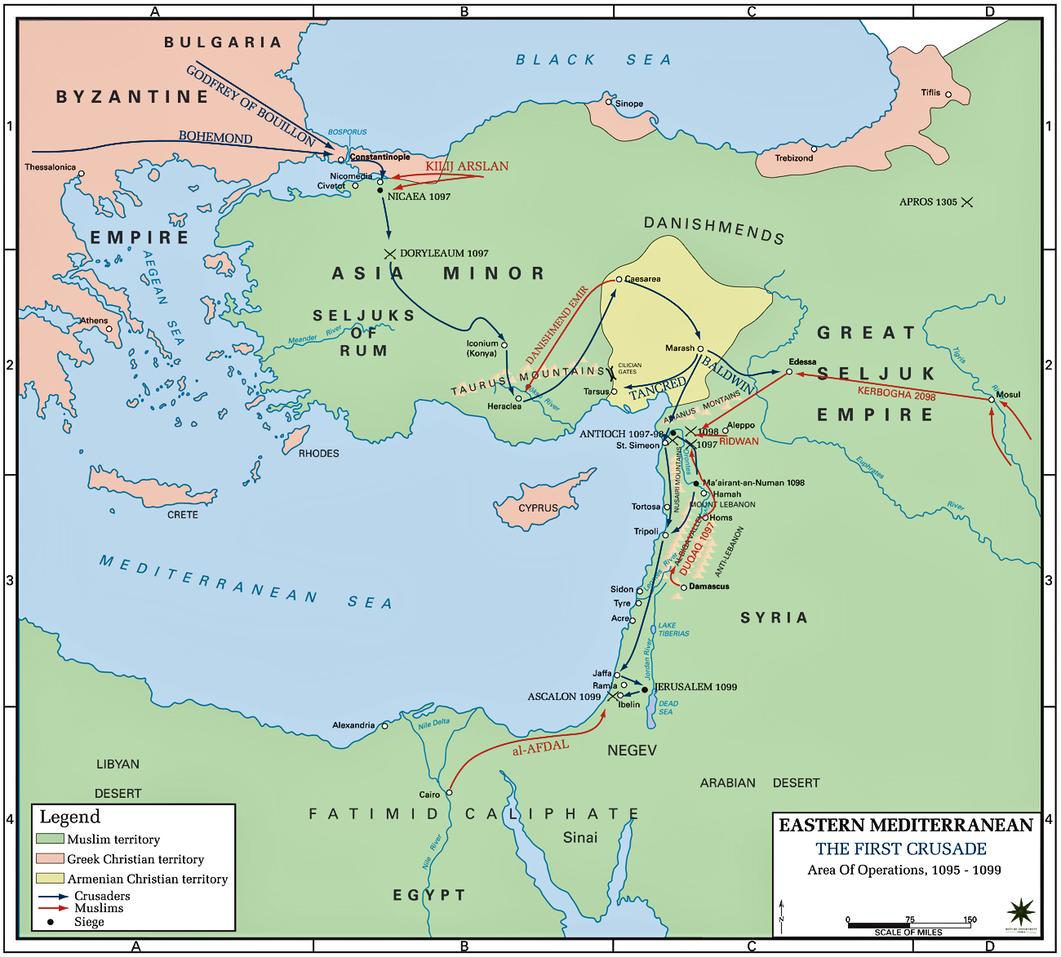
One hope was that the Crusades would mend the East-West Christian split—the Great Schism—but this failed spectacularly. Despite fighting a common enemy, Eastern and Western churches drifted apart further with little progress toward unity.
The schism persisted, and the Crusades, if anything, hardened divisions. So on religious front: no, the Crusades weren’t a success.
Strengthening the Western Church and Politics
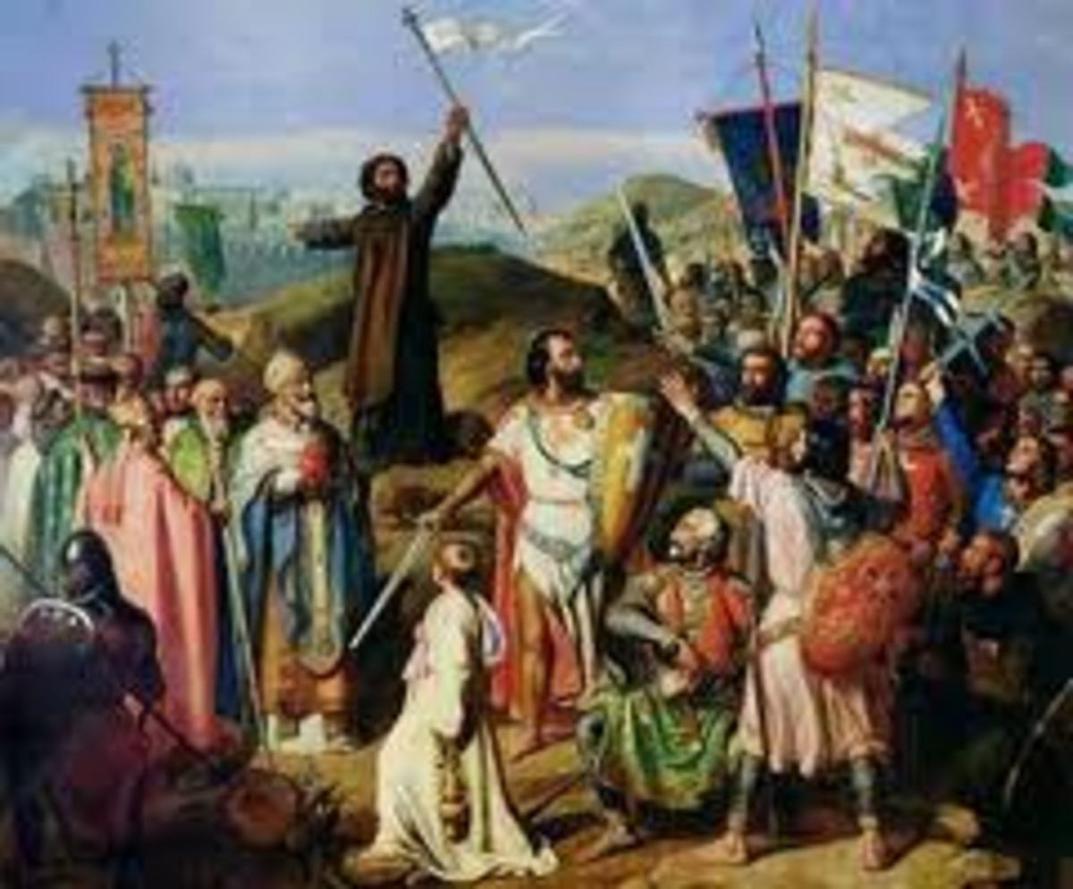
Here’s where the Crusades did some heavy lifting. The Western church, often tangled in scandal and losing authority, used the Crusades to regain legitimacy. The call to arms created a rallying effect.
Western kings gained political leverage by supporting the church’s campaigns, forging new alliances. This pushed power toward centralized monarchies aligned with Rome. The Crusades helped unite often fractious kingdoms under a common cause.
Rome solidified influence amid Europe’s “barbarians.” In this sense, the Crusades did succeed in strengthening the Western church’s grip and boosting political unity in Europe.
Military Failures and Lost Men
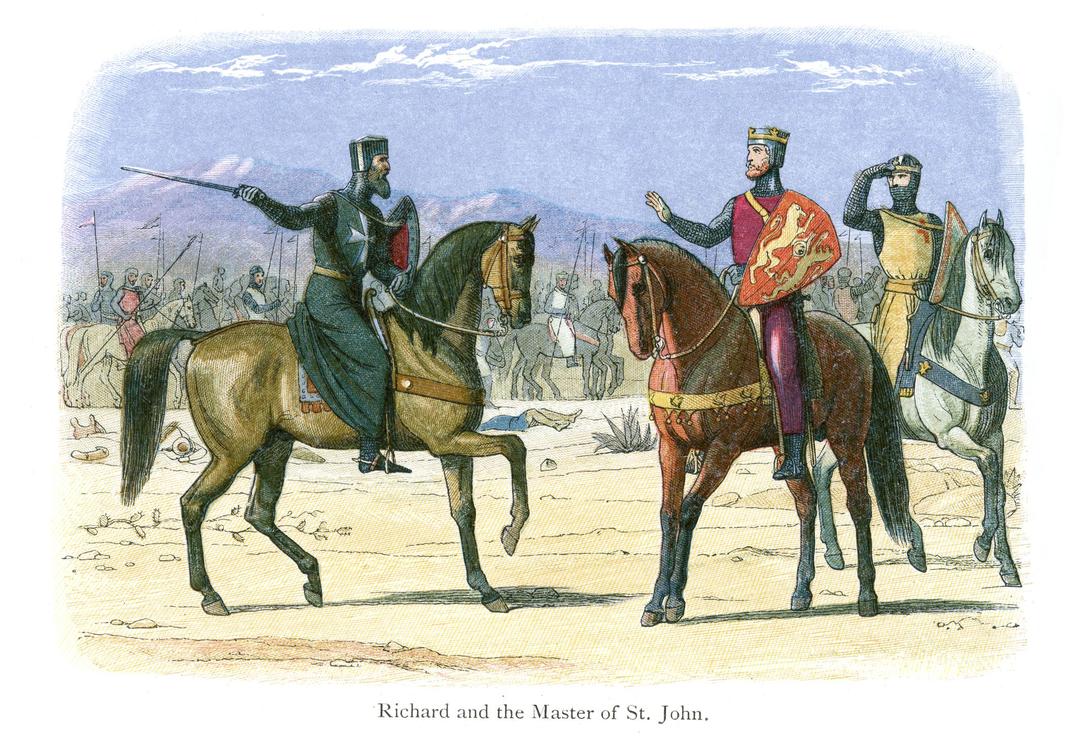
If success means winning battles without heavy losses, the Crusades largely fall short. Many crusader armies never reached Jerusalem due to death, desertion, or defeat along the way.
Even winning armies suffered massive casualties. The Fourth Crusade’s infamous detour saw crusaders ransacking Christian Constantinople—a catastrophic misfire.
So military success was spotty at best, often overshadowed by huge costs.
Propaganda Success and Lasting Division
On the propaganda front, the Crusades were a powerhouse. They united Christians against Muslims under a banner of holy war—a narrative that had staying power. This sense of “us vs. them” still affects interfaith relations today.
So even if battlefield victory was limited, the Crusades succeeded by shaping long-term identities and divisions.
The Mongol Factor
While Christians and Muslims fought, the Mongol Empire was storming through the Middle East, tearing down cities like Baghdad and weakening Muslim powers. This gave Europeans a relative advantage, though it didn’t translate into lasting gains in the Crusader states.
The Mongols’ destruction paved a way for Western dominance later on but ironically weakened the Islamic world more than the Christians themselves did.
Muslim Gains and Exchanges
Interestingly, the Crusades also spread Muslim inventions and discoveries into Europe. The flow of knowledge was two-way. Europeans returned home with wisdom that shaped medicine, science, and technology.
You could argue the Crusades were as much a success for Muslim culture dissemination as for Christian aims.
Crusades Within Europe—A Different Story
Not all Crusades fought overseas. Europe saw its own crusades—for example, against heretics or rival groups. Those campaigns were generally much more “successful” for the Catholic Church since they often crushed opposition and expanded church power.
It’s worth remembering: success for the Crusades is not just about the Middle East but also Europe’s internal battles.
So, Were the Crusades a Success for Christians?
Summing it all up, the answer depends on what you consider success and who you ask. The First Crusade shines as a rare military success creating crusader kingdoms. But other Crusades failed to maintain or expand these gains.
The goal of a lasting Christian Holy Land was not met. Military achievements were often offset by severe losses and setbacks like the Fourth Crusade’s sack of Constantinople.
Yet, the Crusades fueled economic expansion, boosted Western culture, and strengthened the church’s political grip in Europe. They laid groundwork for the Renaissance and modern financial systems.
On the flip side, they deepened divides between East and West churches and between Christians and Muslims, fostering conflicts that echo today.
In foreign policy terms, the Crusades in the Middle East were long-term disasters with minimal durable success. Within Europe, the church’s crusades ruthlessly crushed dissent and thus were more “successful” in a brutal sense.
Final Thoughts: What Does This Mean for Today?
Looking back, the Crusades weren’t just about holy war but significant economic, political, and cultural shifts. They show how complex “success” really is.
If you’re hoping to find a clean win for the Christians in the Crusades, better to brace for a tangled legacy full of unexpected consequences.
Whether you admire or criticize the Crusades, their impact shaped worlds far beyond medieval Europe and the Holy Land.
So, was it worth it? That’s a question still debated – great topic for history lovers to ponder over a cup of medieval mead.
1. Did the Crusades achieve their main goal of securing the Holy Land for Christians?
No, the Crusades failed to secure the Holy Land long term. Although initial victories were made, the Christians lost most territorial gains eventually.
2. How did the Crusades impact trade and cultural exchange?
- The Crusades opened new trade routes and contacts with the East.
- They helped bring Eastern goods, knowledge, and banking advances to the West.
- This exchange contributed to the Renaissance.
3. Were the Crusades successful in uniting the Eastern and Western Churches?
The Crusades did not unite the Eastern and Western Churches. This goal remained unmet throughout the Crusading period.
4. How did the Crusades affect the power and unity of the Western Church?
The Crusades strengthened the Western Church by building its political legitimacy and encouraging alliances with kings. The Church used the Crusades to assert its influence in Europe.
5. Were the Crusades considered military successes?
Most Crusades were military failures or costly victories with heavy losses. The First Crusade was the main military success, establishing several crusader states.
6. Did the Crusades have lasting consequences in the Middle East?
Yes, they resulted in long-term conflict and instability. The Crusades are seen as a major source of ongoing tensions between Christians and Muslims.
